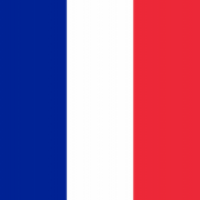Summary:
French start-up founded in 2020 offers state-of-the-art platform to (i) assess posturo-locomotor deficits in aging / CNS Neurodegenerative Diseases / Traumatic brain injury/ inner ear diseases; and (ii) identify the cellular or molecular origin of damage. Platform can be used, among others, to evaluate benefit of a compound on vestibular syndrome or test its inner ear toxicity, and identify its target and mechanism of action. The company is interested in technical or research collaboration.
Description:
French innovative start-up founded in 2020 with expertise in biological mechanisms involved in peripheral vestibulopathies develops proprietary solutions against balance and vestibular disorders. The company offers its technological platform for contract research activities extending to central nervous system (CNS) pathologies associated with balance dysfunction and/or dizziness (e.g. normal and pathologic aging such as Alzheimer, Parkinson, traumatic brain injury, spinal cord injury, multiple sclerosis, amyotrophic lateral sclerosis etc).
The platform combines in-vivo (rodent models of peripheral vestibulopathies) and in-vitro (organotypic cultures of vestibular sensory epithelia and Scarpa lymph nodes) models with functional and histological approaches to enable both the search for proof of effect of pharmacological compounds active on posture, locomotion and vertigo syndrome, and identification of sites and mechanisms of action (MoA).
The offer includes
- In vivo testing: Automatized videotracking of normal or pathological rodents and weight bearing analysis. Specific methods and expertise for non-biased and automated evaluation of posturo-locomotor and balance disorders. Vestibular Evoked Potential analysis. Rodent models: adult rat, normal and genetically modified mice.
- In vitro testing: Inner ear and brain histology; organotypic cultures of vestibular sensory organs and Scarpa ganglion; immunocytochemistry; patch-clamp on brain slices.
The company has a unique expertise in evaluating central reactive mechanisms following peripheral vestibular damage. Company's knowledge is a key asset in developing effective and derisked drug candidates with targeted mechanisms of effect and no side effects.
Vestibular disorders are pathologies stemming from dysfunctions of the vestibular system. They may have a peripheral origin (alteration of the functioning or lesion of the vestibular sensory organs of the inner ear) or a central origin (tumors, strokes).
These vestibular disorders are of varying severity and incidence, ranging from strong occasional (vestibular neuritis) or recurrent (Meniere's disease) vertigo, which are particularly disabling for patients, to postural instability in the elderly, which is responsible for falls with serious consequences, and certain types of motion sickness. Peripheral vestibular disorders are characterized by well-defined symptoms grouped under the term "vertigo syndrome": perceptual deficits, loss of balance, uncontrolled eye movements, impairment of major regulatory functions, cognitive and perceptual deficits. The pathogenic conditions leading to vestibular disorders are varied. The most common are: aging, stroke affecting the inner ear vascular system, infections, trauma, ototoxicity.
The neurophysiological mechanisms at the origin of the vertiginous syndrome have been identified since the 1960s, on the basis of electrophysiological recordings made in the vestibular nuclei of the brainstem of vestibulosed animals. These studies demonstrated that the neurophysiological support of the vertigo syndrome resulted from a disruption of the electrophysiological balance between contralateral vestibular nuclei. This electrical activity asymmetry in the vestibular nuclei area alters the vestibulo-spinal and vestibulo-ocular reflexes, but also the vestibulo-cortical signals. The company develops drug candidates with antivertigo properties based on unique knowledge and patented assets.
The company is interested in technical or research collaboration with universities, private research labs, and pharma companies in the context of European funding programs.
Type (e.g. company, R&D institution…), field of industry and Role of Partner Sought:
The company is interested in technical or research cooperation agreements with universities, biotechs or pharma companies.
The role of the partner sought is to:
-provide the compound to be tested on the platform
-provide previous data on the compounds of interest in order to adequately perform the tests in animals (info on compound chemical properties, PH-PD, anticipated dose-effect).
-participate to the operational plan
Stage of Development:
Project already started
Comments Regarding Stage of Development:
The biotech already develops Contract Research Organization activity with pharmaceutical companies with high standard service.
IPR Status:
Trade Marks
External code:
TOFR20210906001








